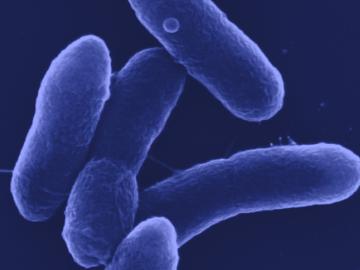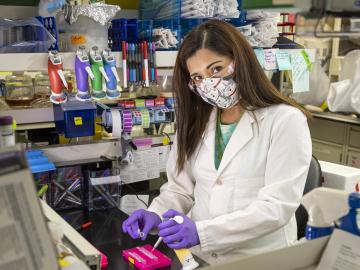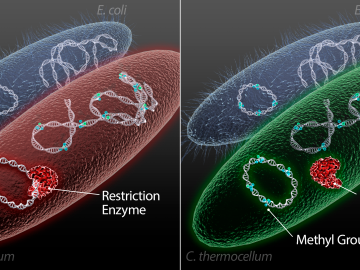Filter News
Area of Research
News Topics
- (-) Biotechnology (13)
- 3-D Printing/Advanced Manufacturing (64)
- Advanced Reactors (21)
- Artificial Intelligence (56)
- Big Data (36)
- Bioenergy (63)
- Biology (73)
- Biomedical (39)
- Buildings (34)
- Chemical Sciences (28)
- Clean Water (27)
- Climate Change (66)
- Composites (14)
- Computer Science (119)
- Coronavirus (28)
- Critical Materials (12)
- Cybersecurity (17)
- Decarbonization (50)
- Emergency (2)
- Energy Storage (58)
- Environment (143)
- Exascale Computing (25)
- Fossil Energy (4)
- Frontier (24)
- Fusion (37)
- Grid (43)
- High-Performance Computing (53)
- Hydropower (11)
- Irradiation (2)
- Isotopes (29)
- ITER (5)
- Machine Learning (31)
- Materials (73)
- Materials Science (71)
- Mathematics (6)
- Mercury (10)
- Microelectronics (2)
- Microscopy (30)
- Molten Salt (6)
- Nanotechnology (28)
- National Security (36)
- Net Zero (9)
- Neutron Science (72)
- Nuclear Energy (70)
- Partnerships (14)
- Physics (30)
- Polymers (15)
- Quantum Computing (21)
- Quantum Science (37)
- Renewable Energy (1)
- Security (11)
- Simulation (35)
- Software (1)
- Space Exploration (21)
- Statistics (1)
- Summit (36)
- Sustainable Energy (84)
- Transformational Challenge Reactor (3)
- Transportation (62)
Media Contacts

A research team led by Oak Ridge National Laboratory bioengineered a microbe to efficiently turn waste into itaconic acid, an industrial chemical used in plastics and paints.

From soda bottles to car bumpers to piping, electronics, and packaging, plastics have become a ubiquitous part of our lives.

Scientists at the US Department of Energy’s Oak Ridge National Laboratory have demonstrated a method to insert genes into a variety of microorganisms that previously would not accept foreign DNA, with the goal of creating custom microbes to break down plants for bioenergy.




